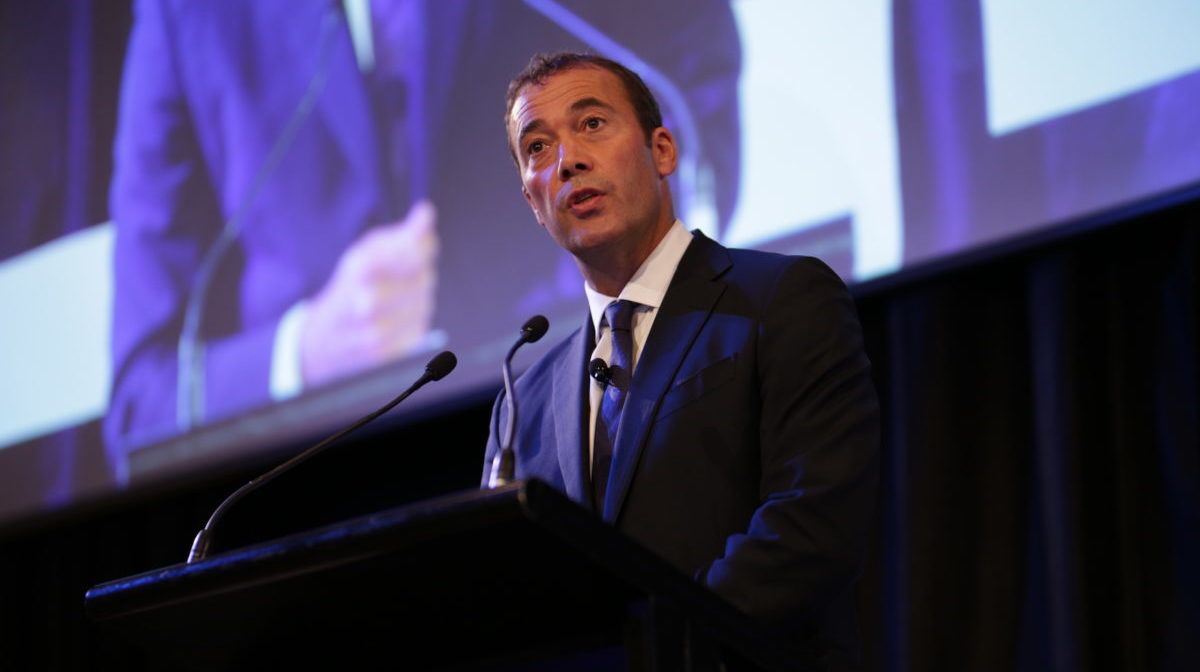Future Forum 2016: Readers want healthy eating, not digital junk food

Editors and executives from international mastheads discuss how they’ve welcomed digital
The CEO of Dow Jones and publisher of The Wall Street Journal, Will Lewis, gave the keynote speech at Future Forum 2016. This is an edited version of the highlights.
MORE: Future Forum 2016 – A peek into the future of Australian newspapers
Lewis started his speech talking about the Australians he works for including Rupert Murdoch and his sons plus his boss Robert Thomson. Lewis also noted he had this year hired a notable local.
“How great journalism survives and thrives in the digital age is probably one of the most important stories of our time”
“One of Australia’s finest exports Michael Lynagh joined my team this year to become managing director for Dow Jones Corporate in London covering Europe, the Middle East and Africa. Michael knows a thing or two about leadership and teamwork – it’s great to have him on board.”
He then changed tack to talk about the future of the news industry and the various business models being used.
“Making the pursuit and publication of news stories pay its way has become a crisis for most publishers.
“How great journalism survives and thrives in the digital age is probably one of the most important stories of our time.
“And – to add another ironic twist – the algorithmically automated hands that now help distribute much of today’s journalism (great or otherwise)…are the very same hands around the throat of our industry.
“Let’s face it. Our journalists, sales folk, marketers and other key staff operate in a brutally tough market – one that would have had a few of their predecessors break out in a cold sweat.
“The appetite for quality journalism is as keen as ever. Perhaps even keener, as audiences find that the fare slopped out by new entrants and aggregators – pumped up on steroid-like venture capital funding – isn’t quite to their taste.
“People remain highly engaged with news brands they trust for their quality, reach and honesty.
“Recent data shows this applies in Australia just as much as it does in the US and the UK – maybe even more so – which is why I’m confident, excited and bullish about the future.
“When it comes to consuming the content that matters…people will choose healthy eating over digital junk food.”
Lewis then gave his audience an insight into the division of News Corp he runs:
“There is a newspaper model that works. And we believe we have found it at Dow Jones and that’s why we have invested in it and that’s why we are beginning to reap the rewards.
“A model based on paid-for journalism delivered through digital memberships and a much-cherished print product. A multiplatform approach supported by smart advertising, not enfeebled by low yield digital ads or ads that aren’t even viewable.
“The Wall Street Journal lies at the core of the Dow Jones model. But this is also a model that deploys our curation and analytical skills to craft data-driven information products. And it’s a model that leverages our brand strength by creating premier events allowing people to develop networks with a depth and purpose beyond those offered via mere digital connectivity.
“This diversity protects us from the vagaries of the ad market.
“And it is a model that lives in the real world – on people’s mobile phones, on desktop and on the newsstand.
“The fact is that more than half of Dow Jones revenues are now digital while The Wall Street Journal remains the biggest-selling print newspaper in the US.
“Quality will out – whatever the platform or mode of distribution.
“The evidence is clear – readers want to read, and advertisers want to be associated with, facts and stimulating opinion, not made up lists masquerading as journalism.
“I’ve done something quite radical over the last year or so. I’ve actually talked to advertisers – and we have some pretty big ones in The Wall Street Journal. And, rather like me, they are far more interested in engagement than platforms.”